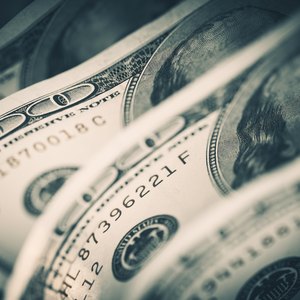
Dividends are one of two ways you can make money on stocks; essentially, they are periodic payments a company gives to stockholders. The other way to make money on stocks, of course, happens when you sell shares for more than you paid for them. When a company pays dividends, you get cash periodically for as long as you own the shares. "Accrued" refers to a dividend the company's board of directors has decided to pay, but the money hasn't actually been sent out yet.
Tips
A dividends accrues between the date it is declared by a company's board of directors and the date at which it is paid out to shareholders.
How Dividends Work
Corporations can decide to pay out some or all of their profits to shareholders. When they do, that's a dividend. Not every company does this, which isn't always a bad thing. For example, rapidly growing firms may choose to keep profits and funnel them into fueling company growth. It's up to the board of directors to decide when to distribute profits to shareholders. When the board announces it is going to pay a dividend, it's called declaring the dividend.
Understanding Accrued Dividends
A dividend is referred to as accrued when the board of directors has declared it but the payment has not actually been made to shareholders. Suppose a dividend is declared on Sept. 1. The distribution is scheduled for Sept. 30. From Sept.1 to Sept. 30, the dividend is said to be accrued.
If you sell stock you own when a dividend has accrued but not been paid out, whether or not you or the buyer gets the dividend depends on what's called the ex-dividend date, which will also be announced with the dividend. If you sell stock before that date, the buyer gets the dividend, but if you sell after, you as the seller get the dividend.
Exploring Preferred Stock
Preferred shares are a special type of stock. A company is contractually obligated to pay a dividend amount that is determined at the time the shares are originally issued, if at all possible. Some preferred shares are "cumulative." This means that if the company is forced to miss a dividend payment, the unpaid amount accrues. Any past due dividends on cumulative preferred stock must be paid when the company's fortunes improve and before any dividends on common stock can be distributed.
Other Important Considerations
You can check a company's balance sheet and other financial statements to see if there are any accrued dividends because they have to be listed as liabilities on these documents and on the company's books until paid. Another point to keep in mind is that dividend payments are often income subject to ordinary income taxes in the year they are actually paid, unless they're classified as qualified dividends and subject to capital gains tax.
However, if you sell a stock with accrued dividends, the profits from the sale are considered capital gains and may be taxed at a lower rate even if a portion of the sale price is attributable to the accrued dividend.
References
- Dividend.com: Introduction to Dividend Stocks
- Accounting Coach: Preferred Stock
- Dividends payable - definition, explanation, journal entries and example | Accounting for Management
- Ex (relationship) - Wikipedia
- Investor.gov: Ex-Dividend Date
- Topic No. 404 Dividends | Internal Revenue Service
- U.S. Securities and Exchange Commission. "Dividend." Accessed June 17, 2020.
- Fidelity Investments. "What Are Dividends?" Accessed June 17, 2020.
- Corporate Finance Institute. "Important Dividend Dates." Accessed June 17, 2020.
- Corporate Finance Institute. "Dividend." Accessed June 17, 2020.
- Fidelity Investments. "Preferred Stock." Accessed June 17, 2020.
- Rice University. "Record Transactions and the Effects on Financial Statements for Cash Dividends, Property Dividends, Stock Dividends, and Stock Splits." Accessed June 17, 2020.
- Corporate Finance Institute. "Special Dividend." Accessed June 17, 2020.
- Pennsylvania Department of Revenue. "Dividends." Accessed June 17, 2020.
- Corporate Finance Institute. "Dividend Payout Ratio." Accessed June 17, 2020.
- U.S. Securities and Exchange Commission. "Form 10-K Coca Cola Co." Accessed June 17, 2020.
- Charles Schwab & Co. "Dividend Yield and Dividend Growth: Fundamental Value Analytics." Accessed June 17, 2020.
- Internal Revenue Service. "Publication 550 (2019): Investment Income and Expenses (Including Capital Gains and Losses)," Page 19. Accessed June 17, 2020.
- Value Line. "Dividends Come Out of Cash Flow, Not Earnings." Accessed June 17, 2020.
- Pillsbury Law. "SEC Disclosure Update and Simplification." Accessed June 17, 2020.
- Corporate Finance Institute. "Dividend Reinvestment Plan (DRIP)." Accessed June 17, 2020.
- Robinhood. "What Is a Dividend Reinvestment Plan (DRIP)?" Accessed June 17, 2020.
- U.S. Securities and Exchange Commission. "American Financial Group Inc. - Dividend Reinvestment Plan." Accessed June 17, 2020.
Writer Bio
Based in Atlanta, Georgia, W D Adkins has been writing professionally since 2008. He writes about business, personal finance and careers. Adkins holds master's degrees in history and sociology from Georgia State University. He became a member of the Society of Professional Journalists in 2009.

